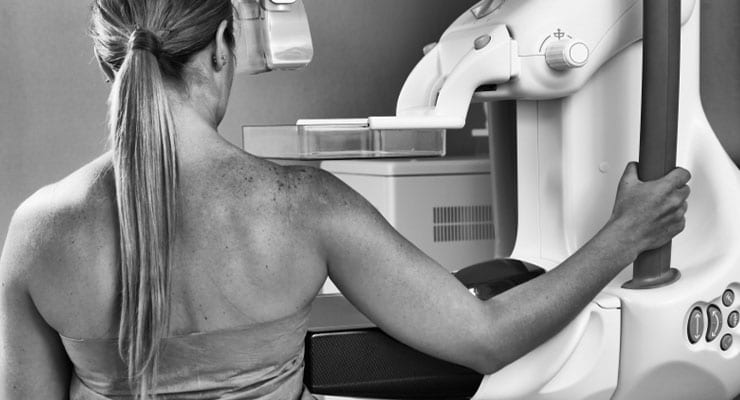Breast cancer can can afflict both men and women, but it is far more prevalent among women. It is the second-most commonly diagnosed type of cancer among women, exceeded only by skin cancer. Massive breast cancer awareness campaigns and improved early detection and treatment methods have contributed to a steadily increasing survival rate for breast cancer victims, but the medical community is still not sure of the causes of breast cancer in women.
Features
Cancer involves the uncontrolled growth of cells. Breast cancer is differentiated by the uncontrolled growth of cells in the breast. This type of cancer in women usually starts in the milk ducts, but it can also start in the lobules or in other parts of the breast such as the fatty or connective tissue. Cancerous cells begin to grow and multiply rapidly until they form a malignant tumor. These tumors may metastasize, or spread, into the lymph system where they can invade other parts of the body.
Heredity
Women who have immediate family members who have a history of breast cancer have a higher risk for developing breast cancer, according to Susan G. Komen for the Cure. This increased risk is due to a mutated gene, most commonly identified as breast cancer gene 1 (BRCA1) or breast cancer gene 2 (BRCA2). Women who have close relatives who have suffered from breast cancer may consider genetic testing to determine whether the breast cancer in their family is genetically based. The Mayo Clinic estimates hereditary genetic mutations are responsible for between 5 and 10 percent of breast cancer cases.
Risk Factors
The largest risk factor women face regarding breast cancer is simply being female. Women are about 100 times more likely to develop breast cancer than men according to Susan G. Komen for the Cure. A woman’s risk for developing breast cancer increases as she ages with 95 percent of cases diagnosed in women over 40. Women who have had cancer or have a family history of cancer are at an increased risk for breast cancer. Other risk factors may include delayed first childbirth until after the age of 35, delayed onset of menopause after the age of 55, radiation exposure and obesity.
Early Detection
Early detection of breast cancer offers women the best chance for effective treatment. The American Cancer Society advocates annual mammograms for women who are over 40 and are in good health. Women who have breast implants are also eligible to have mammograms, but they should inform the technician so appropriate angles can be obtained. Women who are between 20 and 40 years old should have a clinical breast examination performed by a trained medical professional at least once every three years. Women over the age of 20 should know how their breasts normally look and feel during different times of their monthly cycle, so they can report any abnormal changes to their health care provider.
Treatment
Breast cancer is a complex condition and treatment is dependent on a number of factors that are specific to the patient. Considerations may include the patient’s age and general health, the type and developmental stage of the cancer and, to a certain extent, the preferences of the patient. Treatment options may include surgical procedures such as a lumpectomy, where the tumor is removed, or a mastectomy which involves removing the whole breast. Doctors may use radiation or chemical therapy instead of, or in addition to, surgical procedures.





